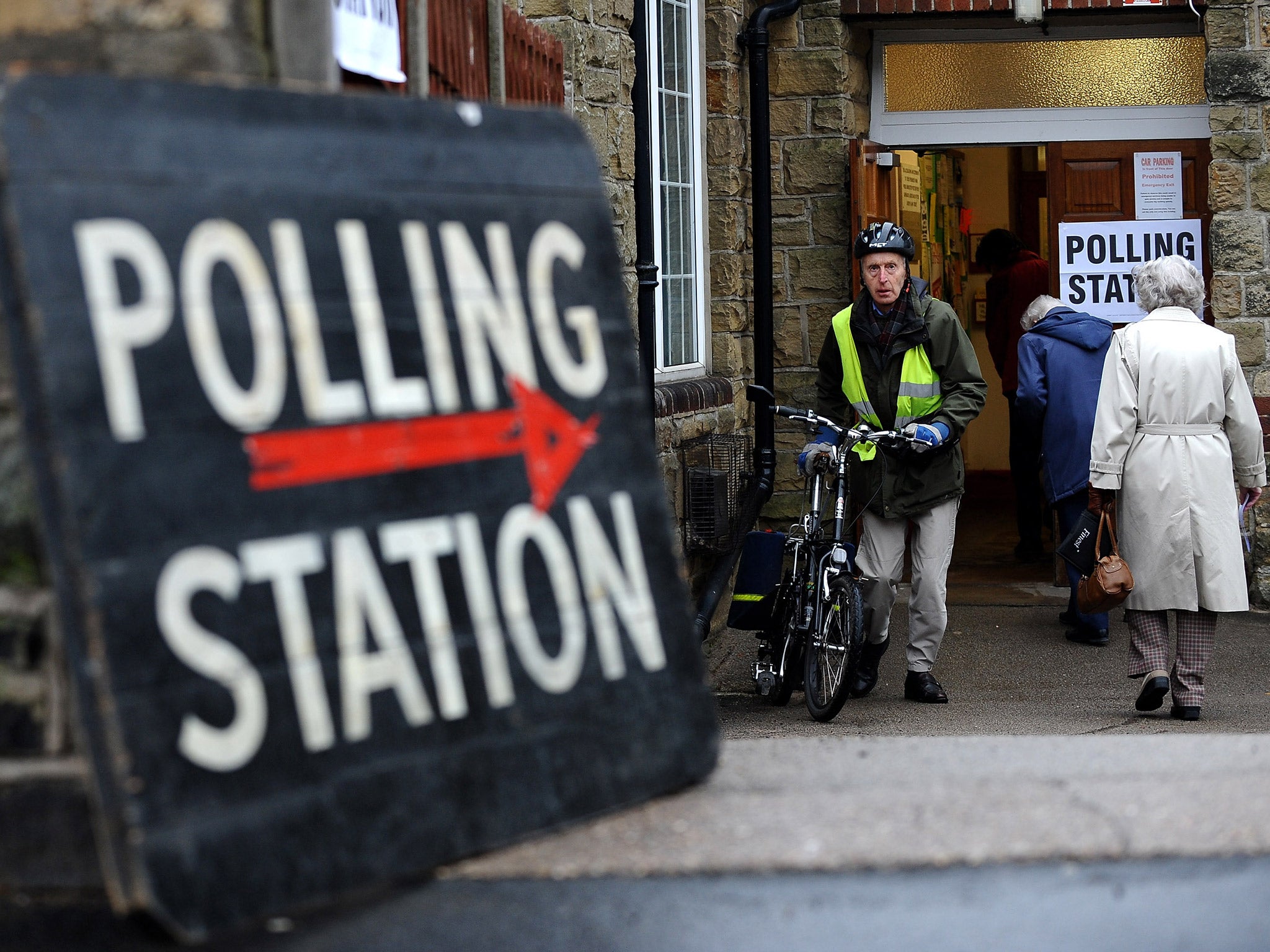General Election 2015: Can digitally-savvy youth vote swing the closest campaign in living memory?
A flurry of last-minute polls show the main parties are still neck and neck as leaders make their final pitches in an attempt to sway the electorate

Your support helps us to tell the story
From reproductive rights to climate change to Big Tech, The Independent is on the ground when the story is developing. Whether it's investigating the financials of Elon Musk's pro-Trump PAC or producing our latest documentary, 'The A Word', which shines a light on the American women fighting for reproductive rights, we know how important it is to parse out the facts from the messaging.
At such a critical moment in US history, we need reporters on the ground. Your donation allows us to keep sending journalists to speak to both sides of the story.
The Independent is trusted by Americans across the entire political spectrum. And unlike many other quality news outlets, we choose not to lock Americans out of our reporting and analysis with paywalls. We believe quality journalism should be available to everyone, paid for by those who can afford it.
Your support makes all the difference.It is the closest fought election campaign in living memory. Now the final day of campaigning has begun in earnest with neither the Conservatives nor Labour pulling away in the polls and predictions that we could see the largest youth turnout since 1964.
Nearly three quarters of Britain’s 6.8 million 18- to 24-year-olds are registered to vote, 14 per cent more than in 2010, according to youth charity VInspired. Digitally-savvy, circumventing traditional media and operating in an unchartered technological era, their participation marks something of an unknown for party leaders.
Labour has chased this demographic. Ed Miliband, who courted and earned the endorsement of Russell Brand last week, gave an interview to video blogger Louise Pentland who courts an even larger online following. Mr Miliband said he had joined the Labour party at the age of 17 because of a “sense we needed to change things” and young people had the “right to complain” but should try and do something about it by voting.
David Cameron, who is meeting shift workers and others on a through-the-night battle bus trip from Brecon to Carlisle, will reiterate his message that a Tory vote would keep the country on “the road to a brighter future” and warn backing the Liberal Democrats or Ukip would allow Labour in through the “back door”. “Tomorrow, the British people make their most important decision for a generation: me as your prime minister continuing the plan that's put the country on the right track. Or risking it all with Ed Miliband, held to ransom by Nicola Sturgeon, Alex Salmond and the SNP,” he will say.
Lib Dem leader Nick Clegg said unless his party wielded sufficient influence to form a coalition with either main party that commanded a Commons majority, the country could be forced back to the ballot box by Christmas. He told the Press Association that his party would “expand and grow” after the election, despite the “dents and bruises” of being in office and would not form a coalition with either the Tories or Labour that would not guarantee a majority in the Commons.
Yet polls have remained unmoved by the last-ditch pitches. A Survation survey for The Mirror had Labour on 34 per cent and the Conservatives 33 per cent - both unchanged. A ComRes poll had the Tories in a three point lead - gaining two to reach 35 per cent, while Labour dipped a point to 32 per cent. Meanwhile YouGov for The Sun showed both parties on 34 per cent. The final Ashcroft National Poll saw the Tories retain their lead, but down by four points to 32 per cent and Labour unchanged on 30 per cent.
Social media swing? Young people decide
Matt Wright, 22 Labour Voter, Islington North
“Social media activity such as #Milifandom has engaged young people in political discussion to a greater extent than any deliberate past attempt by politicians. I think this is because it feels organic and has young people at its centre. Even if on the surface the conversation around the hashtag seems slightly irreverent, it’s brought discussion that might not have happened otherwise and to audiences who might never have listened.
Whilst The Sun rubbishes the Labour party without fail and attacks the 17-year-old behind the Milifandom craze, young people have found an arena of their own in which to have political discussion without obvious tabloid bias - this will obviously have a bearing on the election.”
Robyn Swan, 24 Lib Dem Voter, Harpenden and Hitchen
“The rise of politicians using social media has been great, it has been a really useful way to get to grips with all of the party’s policies and the political situation at a local and national level. I also think that it gives politicians, or at least their aides, a chance to hear what people actually think, rather than just hearing from carefully selected opinion groups.”
Thomas Bull, 24 Conservative Voter, Bromsgrove
“Talking about the General Election and ‘Milifandom' on social media has definitely made me and my friends more aware of what is going on in the political sphere – although there definitely appears to be a bit of a left wing bias online. Whether the increased conversation will translate to actual votes is difficult to predict although with more young people aware, the likelihood is more young people will vote.
It has also been really interesting to see how politicians have used Twitter and Facebook within their campaigns and it is good to see them using the channels that resonate with young people.”
Join our commenting forum
Join thought-provoking conversations, follow other Independent readers and see their replies
Comments